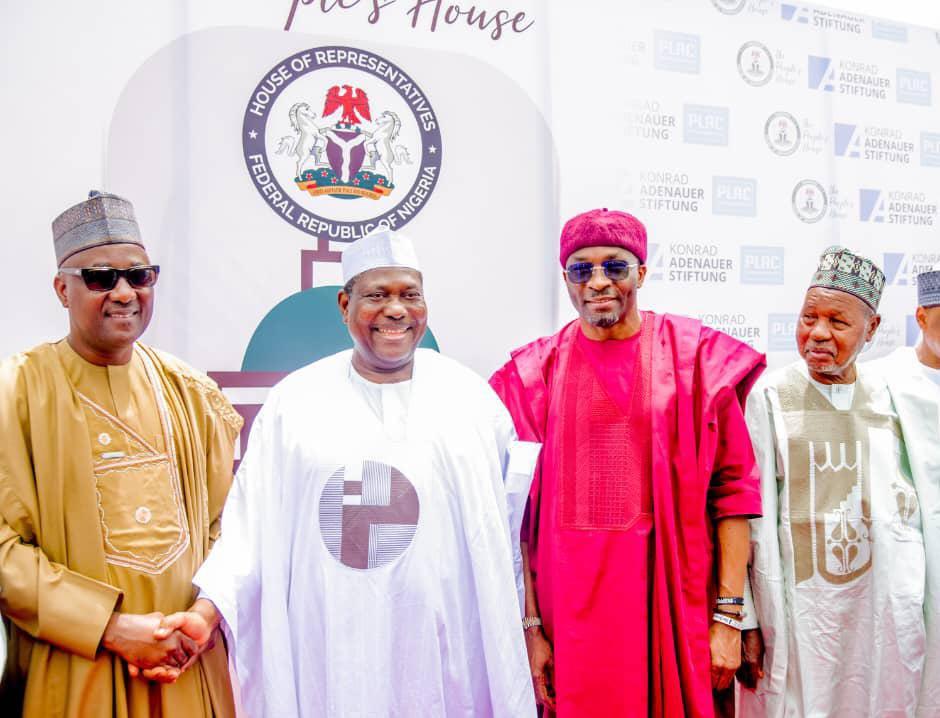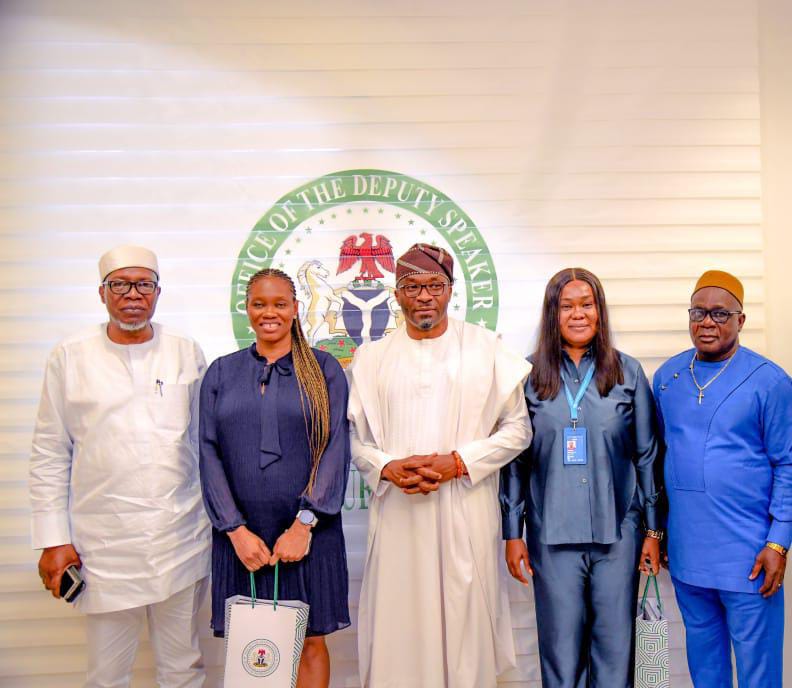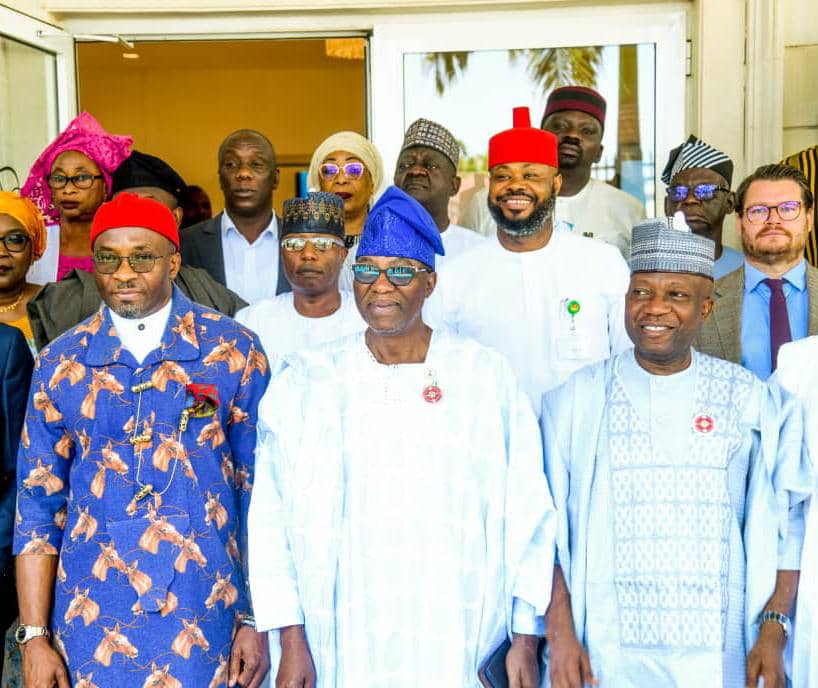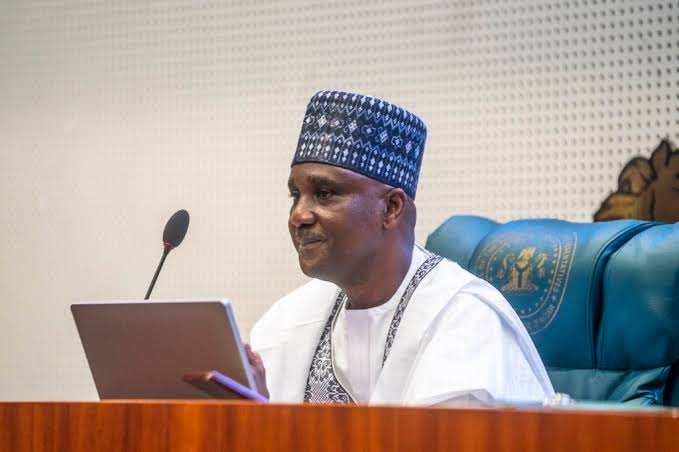REMARKS OF THE RT. HON. ABBAS TAJUDEEN, PHD, SPEAKER, HOUSE OF REPRESENTATIVES, AT THE PRESENTATION OF THE ONE-YEAR SCORECARD OF THE 10TH HOUSE OF REPRESENTATIVES AT THE HOUSE OPEN WEEK 2024, HELD AT THE NATIONAL ASSEMBLY COMPLEX, ABUJA, ON 3RD OF JULY13TH JUNE 2024
[PROTOCOL]
It is with great honour and pride that I welcome you all to this important event of the ‘House Open Week 2024’ and the presentation of the 10th House of Representatives’ one-year scorecard. This event is especially significant as we celebrate 25 years of democracy and the legislature in our dear nation. An open parliament is the cornerstone of a thriving democracy. By ensuring transparency, openness, and accessibility, we can build trust between the legislature and the citizens we serve. This House Open Week provides a unique opportunity to engage directly with the public, fostering a culture of accountability and mutual respect. By opening our doors, we invite scrutiny and dialogue, which are essential for improving governance and strengthening democratic institutions.
The 10th House of Representatives has been committed to running an open House that actively incorporates citizens’ input in lawmaking and oversight processes. We have made concerted efforts to listen to the voices of our constituents and reflect their aspirations in our legislative activities. Through town hall meetings, public hearings, and stakeholder engagements, we have ensured that the legislative process remains inclusive and participatory. This approach not only enhances the quality of our laws but also ensures that our decisions are rooted in the genuine needs and desires of the Nigerian people.
One of the most critical aspects of citizen engagement is accountability. Today, we take a historic step by presenting the Scorecard of the House in its first year. This is the first time any chamber of the National Assembly has undertaken such an initiative. By doing so, we demonstrate our commitment to transparency and readiness to be held accountable by the people we serve. Presenting our Scorecard publicly allows us to showcase our achievements, acknowledge our challenges, and highlight our plans for the future. It reinforces the idea that the parliament is not just a body that makes laws but an institution that is responsible to its constituents for its actions and performance.
This performance assessment was undertaken to evaluate how effectively the 10th House of Representatives has implemented its legislative agenda within its first session. The assessment serves several key purposes:
(i) to gauge the level of preparedness and institutional capacity of the 10th House to deliver on its mandate amid challenging national circumstances, (ii) to assess the maturity of our democracy, which is largely dependent on the efficiency of the legislative arm of government, and (iii) to document the assessment report as a valuable resource in the growing literature of legislative activism.
Findings from the study reveal significant developments in legislative activism. In its first session, the House introduced 1,351 bills, the highest number in any first session since 1999. Of these, 89 bills were passed, reflecting the House’s commitment to legislative efficiency and effectiveness. The legislative agenda prioritises economic empowerment and diversification to reduce Nigeria’s reliance on oil exports. Key bills include the Electricity Act (Amendment) Bill, 2023, which aims to enhance the efficiency and sustainability of Nigeria’s electricity sector by promoting investment in renewable energy sources. Furthermore, the Federal Audit Service Act (Amendment) Bill, 2023, strengthens financial oversight and transparency, ensuring better management of public funds and reducing corruption.
In the social sector, the Administration of Criminal Justice Act (Repeal and Enactment) Bill, 2023, modernises the criminal justice system to ensure fairer trials and better protection of human rights. The Federal Fire and Rescue Service Bill, 2023, enhances the capabilities of fire and rescue services, improving public safety and emergency response. In promoting good governance, the Oath Act (Repeal and Enactment) Bill, 2023, revises procedures for oaths of office to promote accountability among public officials. The Control of Small Arms and Light Weapons Bill, 2023, addresses the proliferation of small arms, aiming to improve national security and reduce violence.
The Niger Delta Development Commission Act (Amendment) Bill, 2023, focuses on enhancing development initiatives in the Niger Delta and promoting environmental sustainability and economic growth. Similarly, the South East Development Commission (Establishment) Bill, 2023, establishes a framework for regional development, addresses infrastructure deficits, and promotes socio-economic growth in the South East. The Nigerian Medical Research Council (Establishment) Bill, 2023, supports advancements in medical research, improving healthcare delivery, and tackling public health challenges.
On public hearings, analysis of sessional reports from committees of the First Session of the 10th House reveals that committees conducted numerous public hearings between November and December 2023. Also, as of June 13, 2024, 679 motions were moved on the floor of the 10th House. Of these, 672 (99%) were being considered at various committees, while seven (1%) were negatived. Among these motions, 43 (6.0%) were referred to ad-hoc committees and 629 (93%) to standing committees.
On oversight visits and inspections, the House Committees visited 107 Ministries, Departments, Agencies (MDAs) and projects nationwide. This is despite most standing committees being inaugurated between November and December 2023, averaging 1-2 visits per committee. These visits aimed to ensure that government programs and administration were implemented effectively, efficiently, and in alignment with legislative intent.
The House committees held a total of 502 meetings in the first session of the 10th House. Further analysis shows the frequency distribution of meetings conducted by 117 House committees. The data reveals that 91 committees (77.8%) conducted between 1 and 5 meetings, 21 committees (17.9%) held between 6 and 10 meetings, and 4 committees (3.4%) held more than 11 meetings each. However, one committee did not convene any meetings during this period.
Public petitions remain a powerful mechanism for the House to address grievances from the public. In the year under review, out of the 240 public petitions currently under investigation, a total of 40 cases have been closed. In contrast, 10 cases have been laid before the House for further consideration. By this, the House has shown that it is sensitive and responsive to the people’s yearnings.
The 10th House has also played a pivotal role in mediating conflicts and ensuring the smooth resolution of crises before they escalate. A notable example of their intervention is with the Nigerian Labour Congress (NLC), where the timely dialogue and negotiations led to the successful call-off of a nationwide strike, thereby averting further potential economic disruptions. Additionally, the House’s proactive engagement with the Nigerian Teachers Union swiftly resolved their grievances, ensuring minimal disruption to the educational sector. Similarly, their effective mediation with the Nigerian Medical Association facilitated the resolution of key issues, promoting stability within the healthcare sector. These examples underscore the Assembly’s commitment to fostering dialogue and maintaining harmony across various sectors in Nigeria.
The various legislative activities highlighted in our Scorecard were made possible by the harmonious relationship between the 10th House of Representatives and the other arms of government in the first year of the administration of President Bola Ahmed Tinubu, GCFR. This should be appreciated against the backdrop of the familiar friction associated with the legislative and executive arms in the earlier part of the democratisation process. Without prejudice to the requirement of checks and balances, which is the hallmark of democracy, the 10th House Representatives, the executive, and judicial arms of government have continued to enjoy mutual institutional support for democratic good governance.
Although the 10th House of Representatives has achieved significant milestones during the period under review, it is important to acknowledge that these accomplishments are not exhaustive of the legislative agenda articulated at the onset of the inauguration of the House. While attributing the progress made so far to the substantial sacrifices, unity of purpose, patriotic commitment to service, and purposeful leadership, there is yet room for improvement in the performance of the House in the years ahead.
This performance assessment report is a modest effort to document achievements and identify gaps. These gaps are considered challenges that should be seen as opportunities to establish a performance-oriented 10th House of Representatives, willing and able to do more pursuant to its mandate of making laws for the peace and good governance of Nigeria.
We extend our sincere appreciation to the Committees of the House and their Chairmen, particularly the Committee on Legislative Agenda, chaired by Hon. Patrick Umoh, PhD and the Committee on Monitoring and Evaluation, chaired by Hon. Obi Aguocha, for their constructive feedback and unwavering support throughout the process. May I also thank our distinguished colleagues in the 10th Senate under the leadership of His Excellency Sen. (Dr.) Godswill Obot Akpabio, CFR, for the cordial working relationship that has allowed seamless concurrence in the passage of bills. Most importantly, we also thank our constituents for allowing us to serve them and for all their support and understanding.
Organising the House Open Week and compiling the First Year Scorecard of the 10th House of Representatives has been a collaborative and comprehensive endeavour. We express our heartfelt gratitude to all individuals and organisations whose contributions were pivotal to the success of this event and Scorecard. Our profound thanks go to civil society organisations, especially the Konrad Adenauer Stiftung (KAS) and Policy and Legal Advocacy Centre (PLAC), for their substantial contributions towards the successful hosting of this Open Week. We also thank YIAGA Africa for partnering with the House to produce the Scorecard. Your significant contributions of resources and expertise were instrumental in generating and enriching the quality of the report. We also acknowledge the lead consultants who meticulously planned and executed the study using an objective and scientific methodology. Their expertise ensured the integrity and robustness of the report.
L
In conclusion, as we move forward, we sincerely desire to sustain and deepen these engagements. We are dedicated to maintaining open lines of communication with the public and to continuously improving our processes to ensure greater transparency and accountability. By doing so, we aim to strengthen the democratic process and build a more inclusive and responsive legislature. We believe sustained engagement with citizens will lead to more effective governance and a stronger, more resilient democracy.
Thank you for coming, and may God bless the Federal Republic of Nigeria.



